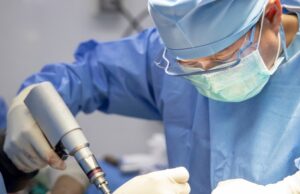
Marie, 33, has experienced this: “When I sat down at a restaurant table, I made sure to put myself in the corner where my nose would be the least visible. Each photo was torture. I had surgery on my nose four years ago, and my life has changed
1. At what age should you decide on rhinoplasty?
The operation is possible when the face has finished its bone and cartilaginous growth, around 16-18 years old. “This is a theoretical age, specifies Dr. Gerbault, professor at the International Society of Asthetic Plastic Surgery. Because psychological maturity remains. I can exceptionally operate on a 14-year-old teenager, with the agreement of the parents, if the nose poses a real psychological problem.
2. How to choose your cosmetic surgeon?
It is necessary to take at least two different opinions, and to check the reputation of the surgeon by relying on word of mouth. The practitioner must be experienced and perform rhinoplasties regularly. The woman, for her part, must feel confident, listened to. She still has to explain her request freely, without the surgeon trying to impose her choice.
3. How do I explain what I want?
This dialogue with the surgeon is essential. The key word is “natural”, the nose must harmonize with the rest of the face. It should be well understood, because otherwise the end result may be objectively beautiful, but not pleasing. Showing photos in magazines, doing morphing simulations from photos, explaining your expectations in front of the mirror… several techniques allow you to anticipate the final result.
4. What if I have a breathing problem?
There are few contraindications to an operation of the nose: “In certain cases of diffuse polyposis (growths in the mucous membranes) and which deform the nose, or in the event of an uncorrectable bleeding problem, the operation is prevented. But these cases are rare. Often, the operation will even allow you to breathe better,” explains Dr. Gerbault.
5. Can a rhinoplasty fix everything?
Everything is correctable, starting with the most classic cases of a bump on the nose or a nose that is too thick… even if some cases remain more delicate.
If there is a ‘faux bump’ : “People who have a hollow between the two eyes can give the impression of having a bump. This is a case where injection rhinoplasty (see question 8) gives good results.
6. How is the operation going?
During a classic rhinoplasty , the surgeon will most often operate under general anesthesia for one to three hours. There are two ways to do this. First through the inside of the nose (closed rhinoplasty): “The endonasal route without scarring is generally faster,” says Dr. Braccini, president of the Advanced Society of Aesthetic and Plastic Medicine and Surgery.
7. Are the suites binding?
This nose operation may require an overnight hospital stay. The consequences are binding: count at least one week of social eviction. The patient in some cases wears wicks to prevent bleeding for two days, a cast or splint for a week. It takes one to two weeks of bruises around the eyes.
Then, for the nose to find its final appearance, it will take up to a year for the swelling to subside. “This edema is reabsorbed in several stages. On the upper and bony part, the final result can be seen in two or three months. »
8. Can I correct my nose with injections?
This is medical rhinoplasty , which corrects small defects of the nose with injections (hyaluronic acid).
This method has several advantages: it is quick and non-invasive, and there are few consequences. “The result can last from 1 to 3 years because the nose is not a very mobile area, the hyaluronic acid can stay in place for a long time”, specifies Dr. Braccini.
9. How much does rhinoplasty cost? Is it reimbursed?
For a classic rhinoplasty, it takes 3,500 to 8,000 euros.
For rhinoplasty with ultrasonic rhinosculpture: from 4,000 euros.
For a medical rhinoplasty: from 300 or 400 euros for an injection of hyaluronic acid.
The operation can be at least partially covered by Social Security, after prior agreement, when a respiratory problem is diagnosed, the functional part is covered.
10. Will my nose be more sensitive?
Once the consolidation period has passed, there is no reason to say that the nose will be more fragile. “ Even if it is surely purely psychological, I pay more attention to my nose since it was operated on, explains Marie, operated on four years ago. Let’s say that, as it cost me dearly, I don’t want to damage it! »








